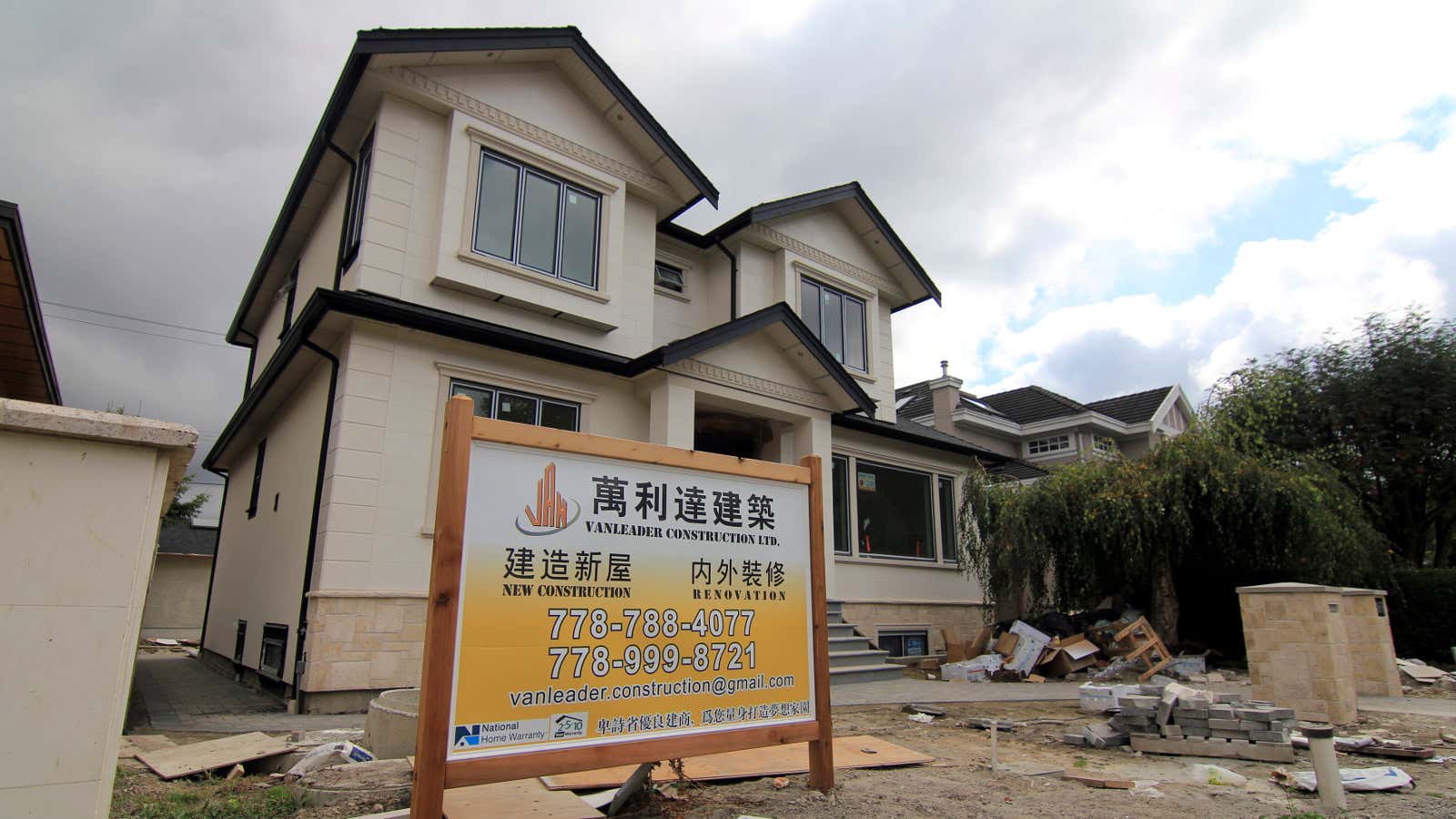When money changes hands and the prize is a chance to live in a prosperous Western democracy, anything goes—a lesson that politicians in Canada and the US are learning this fall.
It’s possible to purchase residency or even citizenship in many countries around the world, and the US and Canada both have laws that give visas to foreigners with a certain net worth for investing in those countries—about $500,000 in the US and $715,000 in Canada. These programs have proven particularly popular with Chinese, who can afford the price, thanks to their own country’s impressive growth, but have an interest in seeking stability outside of China’s party-controlled political system.
But anytime a public good is essentially for sale, you can expect trouble.
Chinese investors are blowing up Vancouver’s real estate
The real estate market in Vancouver, British Columbia, is the most expensive in Canada—prices have grown more than 35% since 2009, and homes in the $2-5 million range have grown 49%. But one factor for this extraordinary boost of investment, besides the fact that Vancouver is quite nice and is relatively close to China, is that some of the Chinese buying residency there had been abusing their visas. The South China Morning Post published an investigation that found some 15,000 Chinese families who settled in British Columbia as part of the visa program were supposed to live in a different province but instead settled in BC. This is also means that BC missed out on $1.78 billion in loans that went to different provinces. Canada has shut down its former investment visa program and is trying to create a new one that leads to less abuse.
American politicians are blowing up a Senate race
Control of the US government after this fall’s elections may hinge on a corruption scandal involving the US visa investment program. In South Dakota, Republican governor Mike Rounds is running for the Senate has become mired in a scandal around his administration of the visa program, giving Democrats a final straw to grasp as they attempt to avoid losing control of Congress. The details of the scandal are relatively complicated, but essentially suggest a state employee abused the program for his own gain, funneling administration of the investment to a company he controlled, garnering a $500,000 or more in kickbacks.
While there is no suggestion that the visa-seeking investors were complicit in any wrong-doing, the $115 million meat-packing plant they funded is now bankrupt.
Investment visas can be an effective way to attract capital and expand immigration, but given the side-effects, most economists think it would be more efficient (and economically beneficial) to simply expand immigration programs based on skills, lotteries or family membership.




